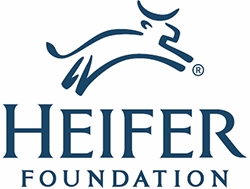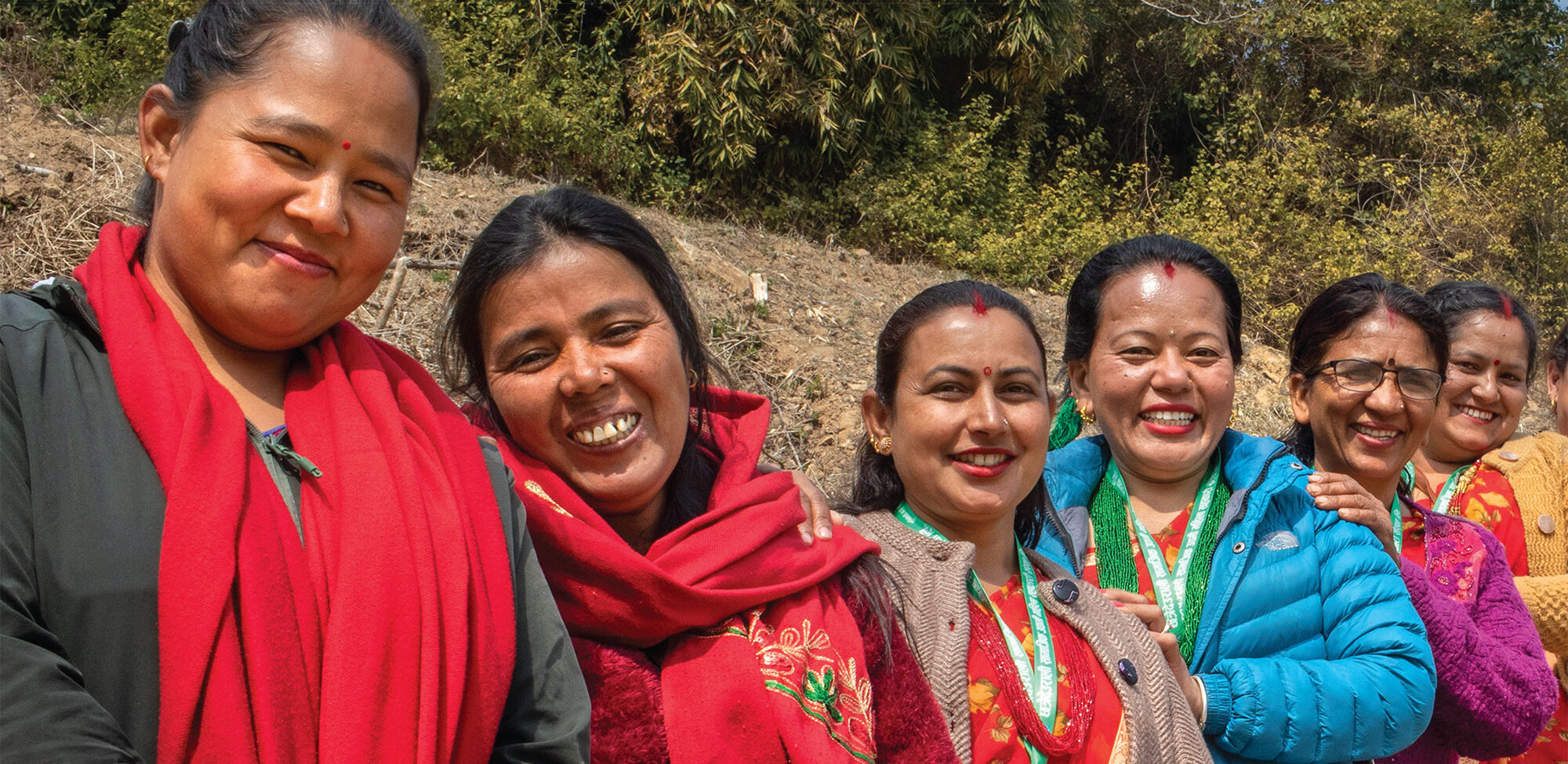
SPRING 2023
HEIFER FOUNDATION
NEWSLETTER
What’s Inside
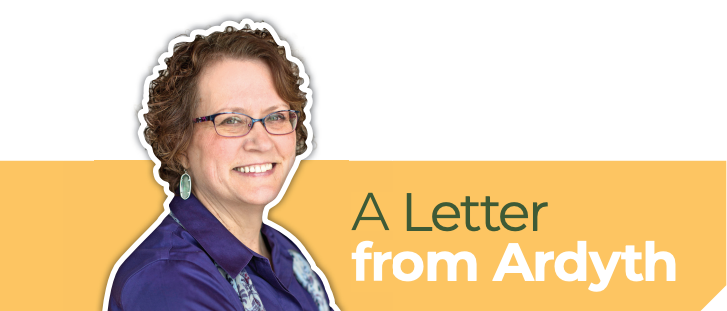
DEAR FRIENDS,
In 2021, 828 million people around the world faced hunger — the first increase in decades. A combination of inflation, conflict, climate change and COVID-19 has triggered a global food crisis that will push millions more into extreme poverty, magnifying world hunger.
Agriculture and farmers — specifically women farmers — are key to solving this food crisis. Small-scale farmers produce one-third of the world’s food. Women make up 41% of the global agricultural workforce, but they own only 15% of the land. This is referred to as the agricultural gender gap. This is mainly due to structural barriers like land distribution; unequal access to knowledge, skills, technology, and capital; and being less empowered to be leaders and decision-makers. Closing the agricultural gender gap has the potential to increase global food production by up to 30%, which could decrease global hunger by up to 17%.
At Heifer Foundation, we are proud that our investments address these issues. We are committed to creating a portfolio that truly reflects our values as an organization through mission-aligned investments. As such, we’ve honed our specific impact themes: gender and diversity, climate, ending hunger and poverty, agriculture and smallholder farmers, and financial inclusion — all themes that are emblematic of Heifer International’s work.
This month, the gender theme has been close to heart. Not only did we celebrate International Women’s Day on March 8, but we celebrate women all month long with Women’s History Month! Women have truly helped shape Heifer’s past and future — women leaders in our projects, women staff members, women donors who have given generously for decades or left Heifer in their estate.
In this newsletter, I would like to introduce you to a few of the women I have the honor to work with, and who inspire me every day. They are the boots on the ground — they work with program families, ensure projects are carried out efficiently and effectively, and see and address the need firsthand. I hope their stories and insight inspire you as much as they do me.
As always, thank you for being part of Heifer Foundation’s journey as we support farming families around the world.
Yours For A Better World,
Ardyth Neill
WHY
WOMEN
Gender equity is key to Heifer projects. Women receive resources and training so they can be successful. As a result, farms become more productive, hunger is decreased and their families and neighbors benefit.
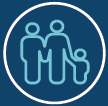
Women reinvest 90% of their earned income in their families, while men reinvest 30–40%.
Closing the gender gap in agriculture could lift 100 to 150 million people out of hunger.
When 10% more girls go to school, a country’s GDP increases by an average of 3%.
Eliminating barriers for women increases productivity by 25% in some countries.
A $10 increase to a woman’s income achieves the same results in children’s nutrition and health as would a $110 increase to a man’s income.
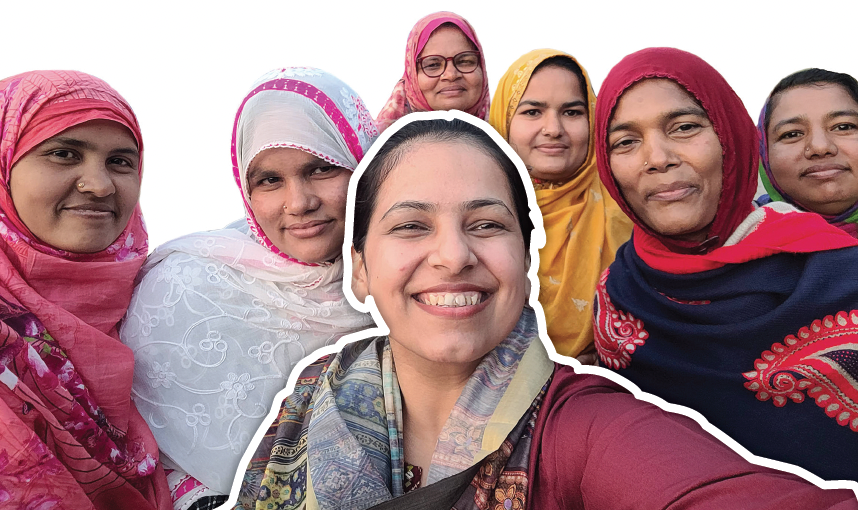
GAURISHA MALHOTRA
Communications Officer, Asia Program
What brought you to Heifer?
Early in my career, I switched from working at an IT company to interning with the United Nations Development Programme with a resolution to pursue a profession that had a purpose larger than just earning a paycheck. My interest in agriculture and my deeply rooted appreciation for our food producers encouraged me to join an organization where I could work for farmers and learn from them along the journey.
What do you see as the greatest challenge for women in your country?
Already marginalized by their economic status as smallholder farmers, women in India are further pushed toward the fringes due to the prevalent restrictive gender norms. Women smallholder farmers are the invisible force that provide hard labor in the fields and contribute significantly to feeding a population of 1.4 billion people. They do this while carrying out domestic chores, providing child care and safeguarding the nutrition of their families — even during periods of distress. Unfortunately, most of the time — there is no one to guard the guard. When food is distributed among the family members, women get to eat the last and the least. This directly leads to poor nutritional and health outcomes for women, which in the short run affects the health of an individual, but in the long run affects the well-being of an entire family, communities and, consequentially, generations. Today, poor maternal health, high maternal mortality ratio, high malnutrition among women and girls, low female literacy rate and high prevalence of violence against women are some of the biggest challenges plaguing the country.
What words do you live by?
The following words from Edward Everett Hale inspire me: “I am only one, but I am one. I cannot do everything, but I can do something. And because I cannot do everything, I will not refuse to do the something that I can do.”
Where do you find balance and joy in your life?
I find joy in listening to stories from anyone and everyone. I feel stories allow us to live more lives than just ours. It’s like stepping into another being, experiencing events and emotions that we might never come across ourselves and becoming a partner in their journey.
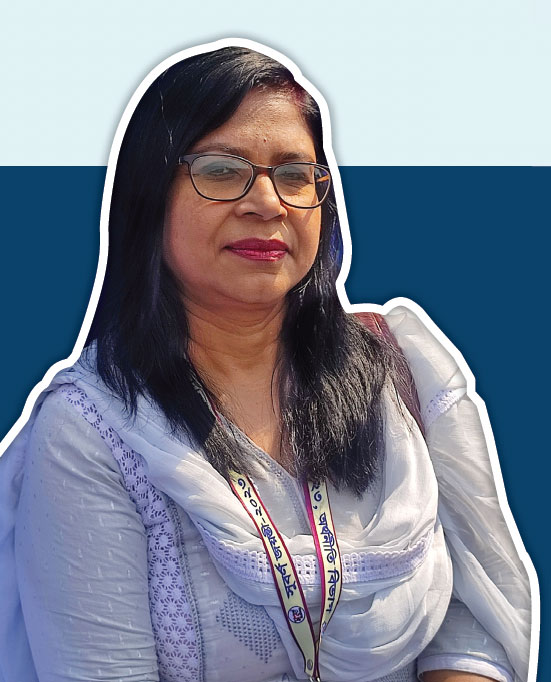
NURUN NAHAR
Interim Country Director, Heifer Bangladesh
What brought you to Heifer?
I used to work with different international nongovernmental organizations (NGO) for different roles, but after joining Heifer, I discovered this was a great opportunity to work under a good organizational culture and diversity. Unlike other organizations, I saw an opportunity to work with the rural farmers to change their livelihoods, as Heifer works toward the cooperative model. In Bangladesh, where 75% of poor women live in rural areas, Heifer works for those poor, unemployed women to change their living standard. Furthermore, Heifer’s unique approach of values is utmost compelling toward sustainable development because of its inevitability in the community. Heifer’s focus on improving production and productivity by using agricultural mechanizations and digital technology attracts the rural farmers, which also attracted me to join the Heifer family.
What do you see as the greatest challenge for women in your country?
More than 25 million of the country’s 165 million people still live in poverty, mainly in rural areas, while a large portion of women still suffer from poverty. Half of the country’s population is women, and women are traditionally unable to participate in outside work since they must do household work and manage family responsibilities. Also, women working in the informal economy go unrecognized even though they are unpaid.
Furthermore, women face difficulties due to limited access to technological facilities, technical knowledge, skill and inadequate social protection. Thus, the greatest challenges are the lack of technical skills and lack of access to technological opportunity that hinder their participation in income-generating activities. Additionally, anti-woman propaganda is being carried out on a large scale using religious
institutions and social media. The safety of women being disrupted in public places has become an alarming issue for Bangladesh.
What instrument do you wish you played?
I used to play a traditional instrument called Tabla, but it has been years, and I have unfortunately returned to beginner stage.
What’s the best advice someone ever gave you?
The best advice I have ever gotten came from my father, who told me to always respect others and to help those who need it the most.
What words do you live by?
The famous Greek philosopher Socrates once said, “Know thyself,” which really resonated with me, as I felt as though I should know more about myself so I can treat people better in the future.
What’s your proudest accomplishment?
My proudest accomplishment is being able to raise my children and watching them grow into sensible and wise people.
What’s the biggest risk you’ve ever taken?
The biggest risk I have ever taken was deciding to enter the NGO sector over the more common government bank sector. I believe that risk has paid off tremendously, and I am more than happy with my current state in the NGO sector.
What’s the most recent book you’ve read?
It was the famous book based on the independence war of Bangladesh titled “Maa” (Mother in English) by Anisul Hoque.
Rosa Rodriguez
Country Director, Heifer Ecuador
What do you see as the greatest challenge for women in your country?
In Ecuador, every 26 hours a woman is murdered by femicide. Every day, we know cases of women who suffer from violence — 65% of women have been victims of some type of violence. We must put an end to this situation and to devaluation of women’s work, so that without fear they can go out, give their opinion and occupy leadership positions. Also, the economic crisis and unemployment that more directly affects women. We have to create employment opportunities so women can sell their products under better conditions at a better price.
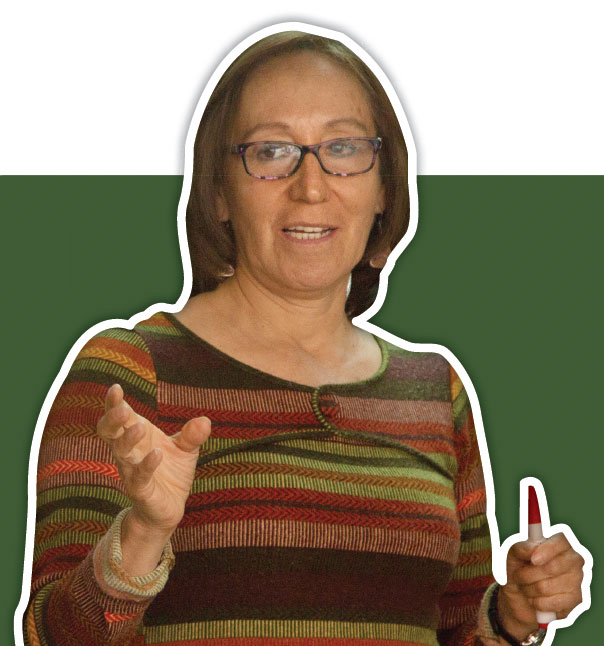
What brought you to Heifer?
I am from Ecuador, a diverse country in its culture, population and gastronomy; I learned to walk with indigenous and poor populations — and I learned to value that since I was a child. Therefore, I was attracted to Heifer by this vision of working with the most impoverished in the rural sector, especially with poverty and with women. Sharing resources is key, because it helps give sustainability to the actions that are supported by Heifer. This is closely linked to the indigenous practice of the minga, of creating and sharing in a chain of solidarity.
Are you a morning person or a night owl?
Morning person. However, sometimes I love to rest the whole morning.
Where do you find balance and joy in your life?
I really like to run; I love to feel the wind on my face when I run. I really like movies and reading books. And, above all, my daughter lives on another continent, and being able to
listen to her, talk to her, cook online together — I love it, it gives me joy.
What’s the most recent book you’ve read?
I just finished a great book from Almudena Grandes, a Spanish writer with enormous sensitivity. It is called “Todo va a mejorar.” It is a novel about what COVID-19 was and the hope that everything would improve.
What instrument do you wish you played?
I really like the violin. My mother was a violinist and every day we woke up to the sound of my mother’s violin, rehearsing. However, I really like dance; the movement of the body with the rhythm of the music.
What’s on your bucket list?
Personally, taking dress-making classes, and, in terms of life, helping to run many organic farmer’s food stores across the country.
What’s the best advice someone ever gave you?
Someone said: How could we believe it was a good idea to grow our food
with chemicals, with poisons? That made me realize that we have the power to decide what to eat. We can choose between a meal that makes us sick or a meal that cares for the health of the environment and people, which allows farming families to receive a fair price and at a fair price for consumers. It changed my relationship with food and empowered me.
What’s your proudest accomplishment?
To see rural women lead businesses and organizations, speak with force, have joy … and on the other hand, to verify the growth of rural family agriculture. Personally, I have run 10 marathons. It is a happiness for me.
What’s the biggest risk you’ve ever taken?
The greatest risk for a woman is to speak firmly, to say what she thinks, not to be pressured. And say it despite sometimes feeling afraid. May fear not paralyze us. Many times, that is my greatest risk.
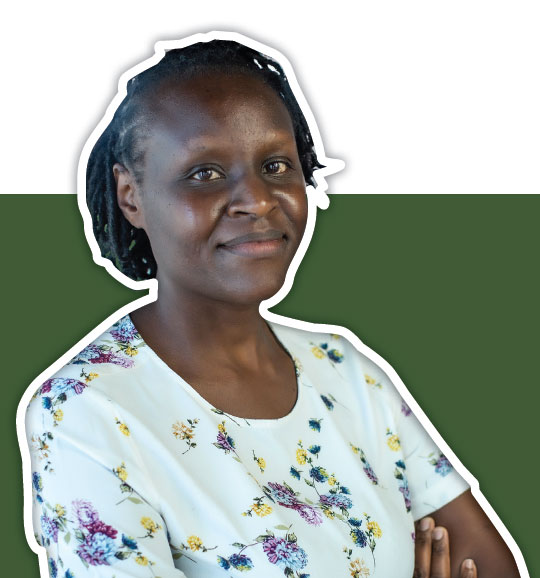
Esther Kahinga
Global Knowledge Manager, Heifer Africa Program
What’s on your bucket list?
To one day run a social enterprise that will enable smallholder farmers to access better markets so they can earn higher incomes and lead dignified lives. According to the International Fund for Agricultural Development (IFAD), investment in agriculture is on average four times more effective in increasing the income of poor people than investment in non-agriculture sectors. In sub-Saharan Africa, economic growth from agriculture is 11 times more effective in reducing extreme poverty than any other sector.
What brought you to Heifer?
My passion to improve livelihoods resonates with Heifer’s mission to end poverty, hunger and care for the Earth. I grew up in Kenya’s central highlands on a smallholder farm. My parents grew coffee and kept dairy cattle and pigs. I witnessed firsthand the difference that access to good markets makes in farming households. I believe that through my work at Heifer more smallholder farmer households can enjoy higher incomes that will enable them to enjoy food security, access quality education for their children, meet health care costs, and generally lead dignified lives.
What do you see as the greatest challenge for women in your country?
In Kenya, agriculture is the main economic activity directly employing more than 70% of the rural people and 40% of the total population. According to the World Bank, women provide up to 49% of farm labor, yet most of the income generated from farming activities goes to men. In addition, women are the primary providers of food, but they have limited access to extension
services, farming supplies, financing and markets, compared to men. These challenges are compounded by frequent and more severe droughts that result in crop failure and lower livestock production. Through our work with small holder farmers, Heifer is enabling women to overcome some of these challenges. In Kenya, we work with women in high-impact value chains, such as poultry and dairy. Our support is delivered through cooperatives that enable women to access extension services, farm inputs at better prices and higher value markets. Others get employment as community agrovet entrepreneurs or community facilitators and even take leadership roles in their cooperatives. The work Heifer is doing in Kenya and Africa at large continues to empower women with many direct and indirect benefits to their communities.
Where do you find balance and joy in your life?
Engaging in spiritual activities, cooking and enjoying a good meal with family and friends, reading a good book, gardening, hiking and playing golf with my spouse.
What’s the most recent book you’ve read?
“The Revelation of Royalty” by Bill Winston gave me a better understanding of how identity shapes my purpose and what I accomplish in life. “Women Who Changed the World” by Igloo Books has more than 60 profiles of women who shaped the modern world. Going through it made me realize that those women started as ordinary women, then they became passionate about a cause and remained steadfast even in the face of difficulties. It challenged me to think “What legacy do I want to create?”
What’s the best advice someone ever gave you?
I do not owe anyone anything apart from respect. This reminds me to treat everyone around me with respect regardless of their status in society. When we treat other people well, we pay it forward.
What words do you live by?
Live and let live. It helps me to appreciate how diverse we are as human beings. That people have different perspectives and preferences on how things get done.
Ruth Canada-Painter
Engagement and Outreach Program Officer, Heifer USA
What’s the best advice someone ever gave you?
Know what you stand for and be willing to stand up for what you know.
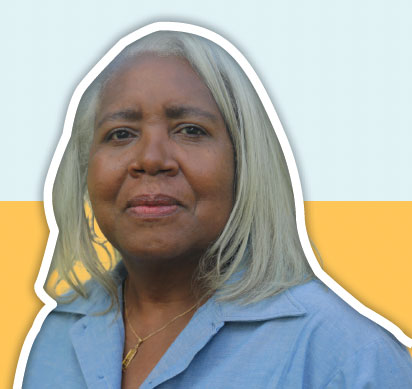
What brought you to Heifer?
I had been working in the College of Agriculture as an administrator at a land grant university in Missouri and loved working with small-scale farmers but wanted more hands-on contact. After 10 years at the university, I wanted to work more directly with farmers, and Heifer provided me with that opportunity.
Where do you find balance and joy in your life?
Finding consistent balance is an ongoing challenge, but joy can be found in everyday, commonplace things: watching the sunrise, walking in the rain, seeing the first shoots of spring or embracing the gray winter landscape. I try to find balance in
prioritizing what needs to be done, but it’s an ever-ending quest. Digging in the dirt and watching things grow puts me closer to a balanced life.
What do you see as the greatest challenge for women in your country?
The greatest challenge for women in the United States is balancing the multiple roles that make up modern-day society. Until women receive additional support with child care, flexible work schedules, and investment in talents, women will forever be on the treadmill of achievement attainment.
What’s the most recent book you’ve read?
The most recent books I have read is a series of medieval novels by Ann Swinfen about life after the 13th century plague. This series focuses on the life of everyday folks learning to live in the moment after the major catastrophe of the plague.
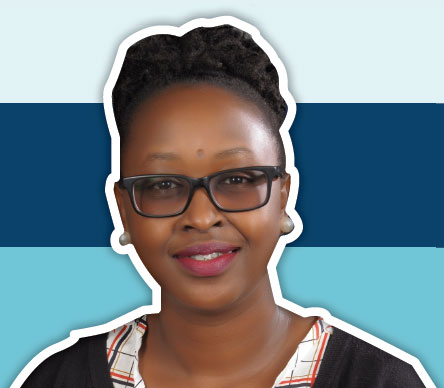
Betty Tushabe
Country Director, Heifer Rwanda
What words do you live by?
“Work like you don’t need the money. Love like you’ve never been hurt. Dance like nobody’s watching.” Mark Twain
What brought you to Heifer?
I joined Heifer International in March 2022, a role I never really envisioned myself in, especially because I have a legal and policy background. After my initial meeting with the exceptional Heifer Africa regional team, I knew I had found my place. What resonated the most with me was the organization’s genuine commitment to making a difference in people’s lives. As far back as I can remember, I have strived to be part of a movement that puts people first. Heifer International provides this opportunity on a daily basis, because
I get to work with teams whose daily work impacts lives and alleviates poverty. As such, I am also able to be a part of a community that contributes to the development of my country.
What do you see as the greatest challenge for women in your country?
Rwanda is one of the most progressive countries when it comes to women’s empowerment and gender development. This is evident in several ways, including the government’s intentional efforts to uplift the role of women in both the public and private sector.
However, like many developing countries, poverty is still one of the challenges that women face.
What’s the best advice someone ever gave you?
“Ibyiza biri Imbere,” which translates to “the best is yet to come.” Whenever my siblings and I came home frustrated or complaining about some inane issue, our mother would repeat this phrase. It has since influenced the way I look or feel about situations I consider challenging or negative.
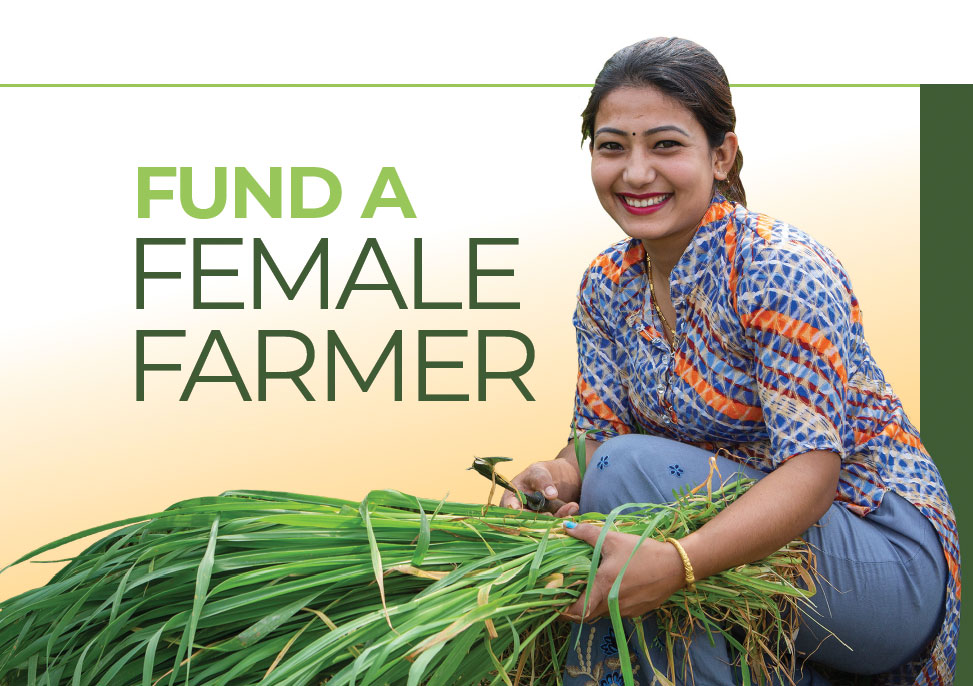
HELP WOMEN UNLOCK THEIR POTENTIAL WHEN YOU ADD HEIFER …
… to your will or estate plans
… as a beneficiary to your retirement plan assets
… in a charitable trust
… to a donor-advised fund
… through an endowment
Agriculture and farmers — specifically female farmers — are key to solving the food crisis. Small-scale farmers produce one-third of the world’s food. But when farmers can’t grow healthy crops or sell their meat and produce for fair prices, there’s no food for our tables. By adding Heifer to your estate plans, you create long-term impact that will support female farmers for generations, ensuring they have the resources and opportunity to thrive.
Because when farmers lose, we all lose. And when farmers win, we all win.
FUND OUR FUTURE!
For more information, contact Debbie McCullough at 501.907.4922 or debbie.mccullough@heiferfoundation.org.
BUILD A RESILIENT FUTURE
If we learned anything over the past year, it’s that you never know what the future holds. However, having a plan in place makes you resilient. Now is a great time to establish your plan and help create a better future. And when you set up a donation to Heifer as part of your estate, you create long-term impact that will support and strengthen communities for generations.
Create a better future by adding Heifer…
- to your will or estate plans
- as a beneficiary to your retirement
plan assets - in a charitable trust
- to a donor-advised fund
Request Your Free Guides!
For more information, contact Debbie McCullough at 501.907.4922 or debbie.mccullough@heiferfoundation.org.
